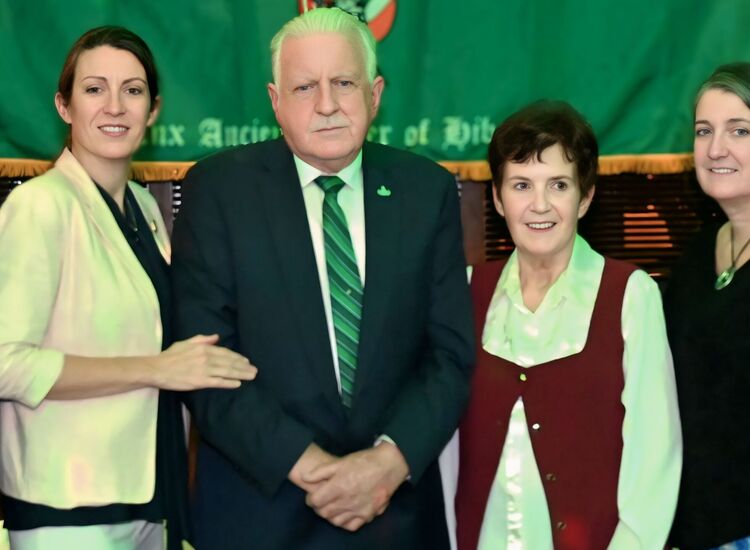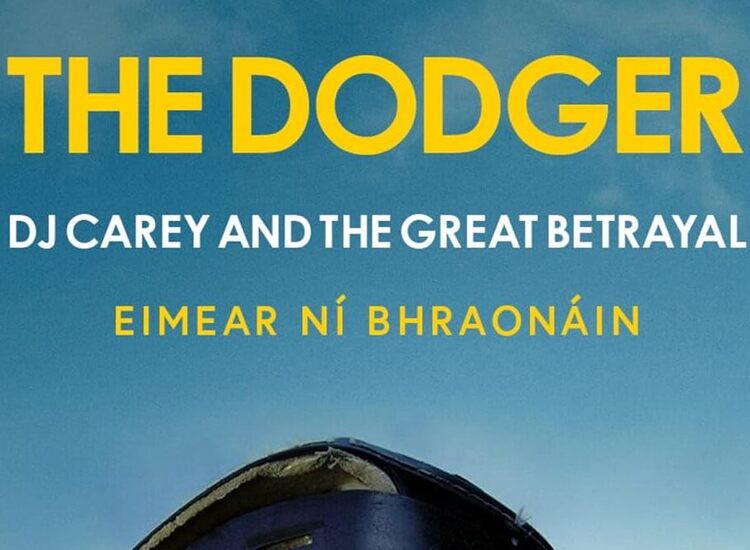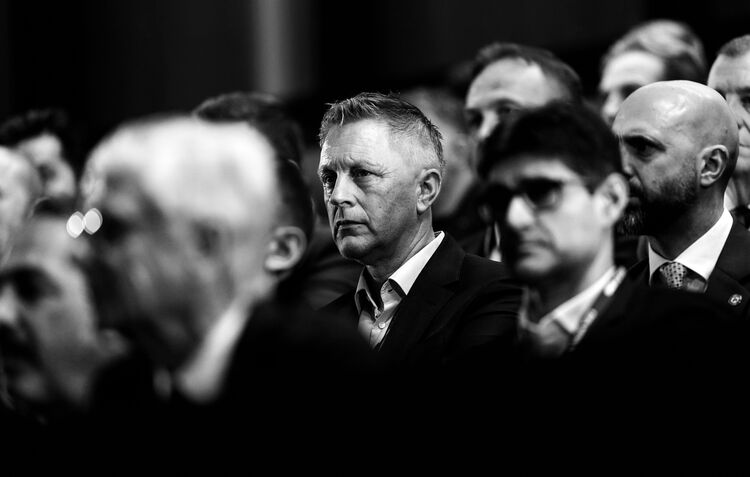The author was raised by his mother in the U.S.; his father lived a different life thousands of miles away.
Book Review / By Jim Rodgers
“My Father Left Me Ireland: An American Son’s Search for Home” by Michael Brendan Dougherty; published in hardcover by Sentinel; 230 pp; $24.
“My Father Left Me Ireland” by American author Michael Brendan Dougherty is part memoir, part history, part political opinion, and part an ode to his largely absentee father in Ireland. It is composed in the form of a letter to his father. A good sign for any memoir, or part memoir, is how it begins. Meaning, one hopes that it does not begin with “I remember when…”
Fortunately this one does not begin that way, although “I remember” rightfully takes its place later. The book begins with “Dear Father, Do you remember when you put the hurl into my hand? I was six, I think. It was a gray day in Clare, a kind of gray I never saw at home in America.” Later in that first chapter, “I remember being waist high to you and my mother in a crowded, dark pub somewhere, and the slightly renegade thrill of being in a place for adults…I had this dim sense of the two of you enjoying each other, and enjoying me. I moved about this world in which every object was charged with meaning. I remember Mom’s blue eye shadow and the gold-plated bangles and your thick Irish wool jumper…I remember the smoke drifting up from her glass held at the height of my head, and seeming to curl around your arm like a lasso. And I was praying it would pull you two closer to each other. But my prayers were not answered. And my memory turns back to America.”
These are poignant words from the author, conveying both a warmth most children at one time or another experience at a young age, and at the same time letting the reader know that in the beginning there was love between his father and mother. Not an unimportant point since the father ultimately stays in Ireland and the author’s unmarried mother raises him in America. It is important, I think, to understand through the father’s abandonment and the subsequent loneliness of both the author and his mother that, in a very brief and organic way, there existed a real love between the parents that was picked up by the child, and which included the child. This love will bring to the author both happiness as well as despair. But without the love there is no relationship, there is no father, and there is no story.
The author weaves his own upbringing in the 1990s with Irish history―connecting the Rising to the Celtic Tiger to Catholicism, and to the author’s own evolution as the son of an Irishman making his way in the suburbs and exurbs of New York City. It is the story of his American mother―a single mother―sacrificing most of her life to raise him and to impart on him his Irish culture and his Irish birthright. It is the story of a young boy who only sees his father at rare times and for brief moments, but retains a love and connection to him until that moment when his mother learns the father has married in Ireland and is raising a separate family. His mother’s subsequent break with the father begins a period of disengagement between the father and the son. Throughout this time, the author grows up, navigating high school and college, attaining high grades, marrying, and fathering his own child, a daughter.
And, importantly, he moves on past the “commodity” of his Irishness to embark on an exploration of true Irish culture. He learns Gaelic, sings authentic Irish ballads and explores the modern history of Ireland, and the importance of Ireland’s retaining its Irish language and culture. Here, his chosen profession, journalism, takes front and center as he argues historical misconceptions about Ireland that even the Irish suffer from. In arguing that nations have souls he opines, ”The life of a nation is never reducible to mere technocracy, just as the home cannot be, no matter how much we try to make it so. I see that nationality is something you do, even with your body, even with your death. I see that a history of plunder does not oblige those plundered to despair; it obliges them to hope, and to act on that hope.”
These are heady thoughts which the author weaves in with a discussion of the Rising and how it formed modern Ireland, and, how it has helped form him. With the birth of his daughter he becomes a father, a full time father who deeply understands the need to connect to his young daughter. And the need for him and his daughter to connect to Irish history and to the soul of Ireland―
“I’ve been contemplating it on nights like last night, when my little girl starts to cry in the middle of the night. I pick her up. I settle her down. And before I fell asleep, I’d been reading Patrick Pearse. And in his words, I think I have found out the answer. This baby girl in my arms overthrows all uncertainty about it. Manhood is found in sacrifices, offered joyfully. The only liberation worth having is one accomplished in sacrifice.”
And so, through his own on-the-fly parental learnings, he comes to understand, and argues for, the importance and relevance of the so-called “failed” Rising, where the leaders were all executed and even the citizens of Dublin saw them as intransigents. His sacrifice as a new parent reveals to him the true nature of sacrifice, whether it be for the future of a nation or the future of one’s child.
As the author settles into fatherhood he is also able to reconcile with his own father, and to include his father in the life of his daughter: “I never knew your father. And yet, on the night my daughter was born, I called you with the good news. You may still feel like you have no right to me. And that through your absence in my boyhood, you have forfeited any claim upon your granddaughter. I cannot speak to how you feel. But I can tell you that she has a claim on you, her grandad, whatever the accidents, smashups, and misunderstandings have characterized life between you and me.”
Of spending more time with his father in Ireland, the author muses, “At night, you’d walk us down the hill, and we’d all tuck into your local haunts. Your friends would greet you, and as if it were the most natural thing in the world, you introduced me. “This is my son, Michael,” from America. Maybe they’d raise an eyebrow. Or joke about what other secrets you might be keeping. And then, each and every one would say what Irish people so often said to Yanks who arrive in their midst: Welcome home.”
Dougherty’s book is a fast read, but it is not unsubstantial, and it is not unduly filled with pathos. The peace and love he finds with the birth of his daughter, the reconciliation he finds with his father and with the nation of his ethnic heritage, were not earned easily. It came with a price―his youth―and because of that his voice resonates with authenticity and most importantly, with hope.
Jim Rodgers is a writer and a lawyer. He lives in Manhattan with his family.








